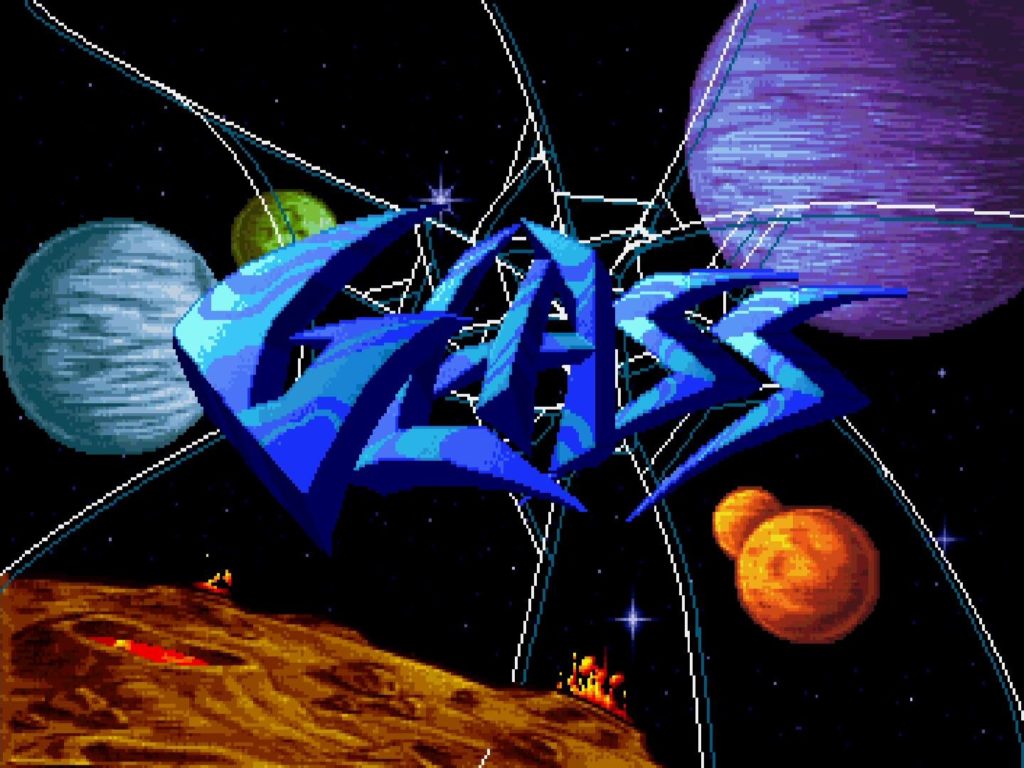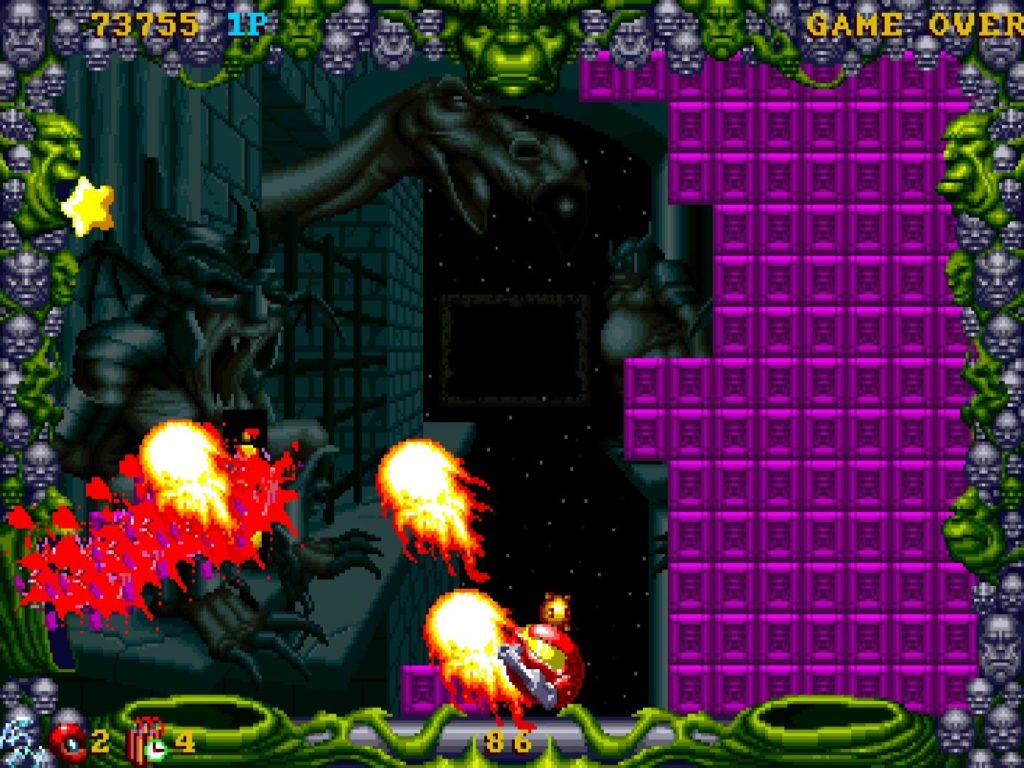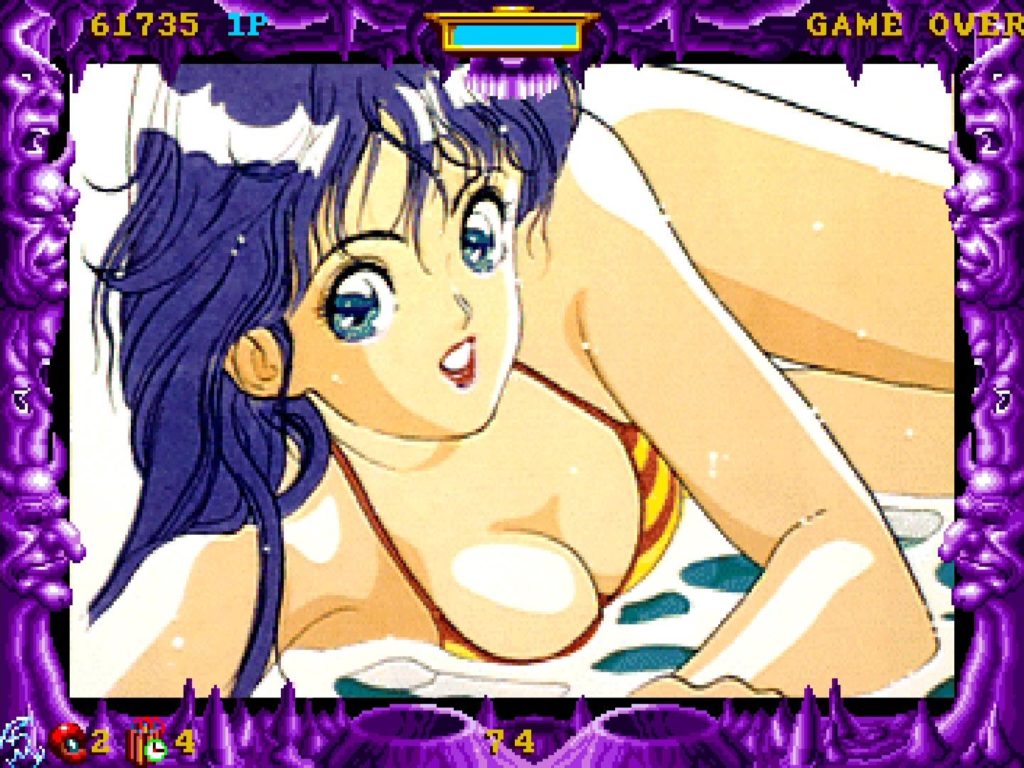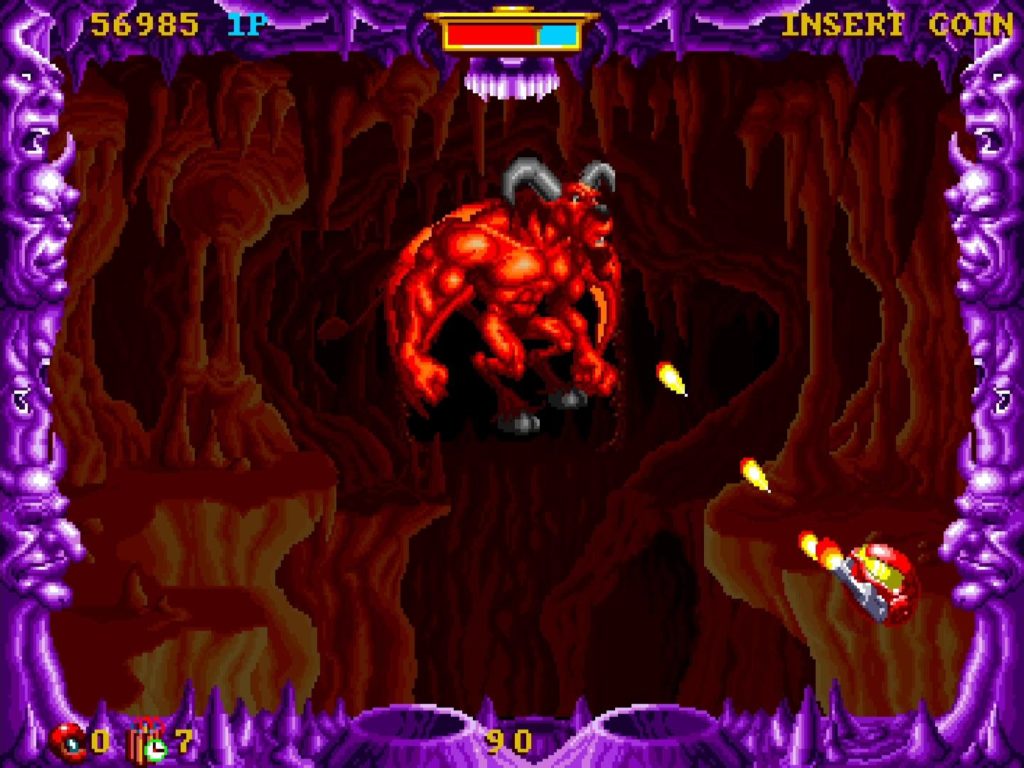The History of Lewd: Glass
The trouble with lewd games is that by their very nature as lewd games, they tend not to get talked about as much as more “respectable” titles.
This situation has been changing in recent years, as the openness of today’s Internet means many people are a lot more comfortable talking about topics that would have previously been “taboo”. Hell, we’re part of that whole movement with this very column. But unfortunately, that does mean there’s a host of games out there for which there’s not a lot of recorded history for — but which are nonetheless well worth exploring.

One such example is Glass, a game developed by Spanish company OMK Software — better known for their home computer titles of the late ’80s and early ’90s — and published by the equally Spanish arcade machine specialists Gaelco.
Gaelco is not an especially well-known name in arcade games. And that’s a real shame, because the work they developed and published in their relatively short time in the gaming sector — including Glass — was of pretty consistently high quality.
So why aren’t they a household name? Well, as we’ve already noted, Glass specifically likely isn’t well-known because it’s a lewd title — the details of which we’ll get onto in a moment. But also, Gaelco’s arcade game boards in general were pretty notorious for incorporating a strong degree of anti-piracy protection, which made them difficult to run on emulators such as MAME. And whatever your feelings on the morals and ethics of downloading ROM files, it’s hard to deny that widespread emulation and digital preservation of arcade games has helped many of these titles reach a far broader audience than they ever would have done in standalone machine format.

Since the turn of the century, Gaelco (who now specialise in electronic dartboards) have seemingly realised that they’re probably not going to make a lot more money from those old arcade games, so helped the game preservation and retro enthusiast communities by providing unprotected versions of ROMs for some of their games — even officially releasing some as freeware. Not only that, if you want an officially licensed copy of some Gaelco games on your shelf for the first time in history, an upcoming arcade cartridge for the Evercade retro gaming platform collects together some of the company’s finest — including Glass.
It’s worth noting at this point that there are several versions of Glass out there; the version we’re getting on Evercade is based on an edited version that was originally developed for the Korean market. The initial release of Glass features digitised photos of both men and women in various states of undress, including bare breasts; the Korean release, meanwhile, replaces all the digitised women with still-saucy-but-tamer anime-style images instead while, oddly, keeping all the digitised photos of men in Speedos completely intact. Something something beauty standards or whatever.
Here’s the thing, though: Glass is one of those games in which the lewd content is almost completely irrelevant to the whole thing; it just rewards you for progressing through the game with some saucy pictures according to whether you selected “Girls Mode” or “Boys Mode” upon starting the game. The actual bulk of the game consists of a beautifully presented arena shoot ’em up in which you’re challenged with clearing stages by destroying all the tiles to reveal a background.

If that all sounds a bit Lady Killer, there are a few key differences here. Firstly, the background you uncover is pure scenery rather than a sexy lady. Secondly, clearing tiles is a matter of simply passing over them and hitting them with a rotating ball that constantly orbits around your ship, rather than diving “into” the stage and popping back out again to flip tiles. And thirdly, you’re rather heavily armed in this. Which is good, because Glass has an astonishingly broad variety of enemies who want nothing more than to deprive you of a glimpse of some tits and/or dongs.
As you move around the stage, enemies will emerge from the borders, preceded by a star-shaped telegraph so you’re never caught by surprise. New enemy types are introduced with pretty much every new stage you reach, so you’re kept constantly on your toes; some can simply be blasted, but others require more interesting strategies to deal with. In the game’s second “world”, there are enemies who first appear surfing on shields, for example; hitting them once causes them to fall off and hang on to their shield, so defeating them completely means you’ll need to hit them again while they’re hanging.
The enemies are consistently beautifully presented, featuring a combination of rendered artwork and pixel art with some outstanding animation. Death animations in particular are drawn with a particular amount of glee, with most enemies bursting satisfyingly into gooey chunks, shattering into pieces or exploding in a colourful flash of light. And the huge variety of enemy types in the game means that an ongoing playthrough feels like a constant journey of discovery; while you’re essentially doing the same thing for most of the game, the different enemies force you to shake up your tactics every so often, as well as memorise their behaviours if you fancy trying for that elusive one-credit clear or a high score.

Each of the game’s worlds concludes with a boss fight, and these all feature interesting design and mechanics, never feeling unfair. Sometimes you’ll have to deal with one powerful enemy; on other occasions, there might be multiple bosses you need to deal with at once. Just like in the regular stages, the boss fights keep the game constantly interesting and feeling fresh.
As for the lewd content, the anime-style girls are cute and the digitised men are more hilarious than anything else; there’s something inherently ridiculous about a stern-faced ’90s man in sunglasses posing provocatively in naught but a pair of red Speedos. The game makes absolutely no effort to explain why the lewd content is there — though the pixel-art ladies who introduce each of the game’s stages with breathy, curiously accented digitised speech set certain expectations right from the outset — and, to me, that’s what makes this game kind of wonderful.
Glass is very much a game that feels like the people behind it threw together a bunch of things that they thought were cool and interesting and then built a game around them without any real concern for such trifling matters as “whether it makes sense”. Because it doesn’t make sense, at all. But you know what? It’s super-fun, it’s beautifully presented and it’s a real highlight of the upcoming Gaelco cartridge for the Evercade, too.

Here’s hoping the new release gives this game the attention and respect it deserves! You can preorder the Gaelco Arcade 1 cartridge for Evercade right here.
Join The Discussion
Rice Digital Discord
Rice Digital Twitter
Rice Digital Facebook
Or write us a letter for the Rice Digital Friday Letters Page by clicking here!
Disclosure: Some links in this article may be affiliate links, which means we may earn a small commission if you make a purchase after clicking on them. This is at no additional cost to you and helps support Rice Digital!
- Letter from the Editor: passing the torch - June 30, 2023
- Super Woden GP 2 is looking promising - June 30, 2023
- Inti Creates is making a 32 bit-style Love Live action platformer - June 26, 2023







